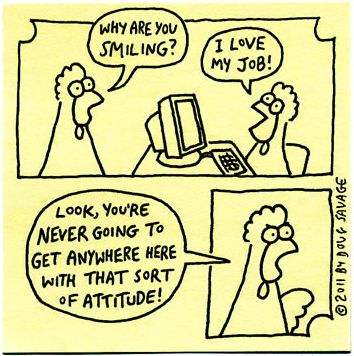 A new report has just been released by the Association of American Colleges and Universities (AAUP) — the press release opens as follows:
A new report has just been released by the Association of American Colleges and Universities (AAUP) — the press release opens as follows:
 While it strikes me that playing the “you can earn a lot of money here too” game means you’ve already gone down the wrong road (for now the other side in this chess match comes back with “Oh yeah? Well even if, on average, you out-earn us during the end of a career, your career-long cumulative salary is still less than ours. So take that!”), it is interesting to see what more data reveals about average earnings and the liberal arts. (Read an article on the report here.)
While it strikes me that playing the “you can earn a lot of money here too” game means you’ve already gone down the wrong road (for now the other side in this chess match comes back with “Oh yeah? Well even if, on average, you out-earn us during the end of a career, your career-long cumulative salary is still less than ours. So take that!”), it is interesting to see what more data reveals about average earnings and the liberal arts. (Read an article on the report here.)
But the ease with which the conversation on what you’re going to do with most of the waking hours of your life is reduced to judging the compensation you’ll receive in exchange for that labor is itself curious. While I’m not going to go all Joseph Campbell and say “Follow your bliss” (a version of “Do what you love,” a position now getting much scorn from those who claim it is obscuring the actual labor and politics of labor entailed in work), I would suggest that, as relevant as potential compensation may be, there’s a host of other criteria that also ought to come into play when taking a stab at predicting your future well-being. If you can find labor that you enjoy (“I love my work”) then grand! You may be among a lucky few who won that lottery. But if you trudge through it since it affords you other goods that you value, then’s that great as well, since it strikes me that, in this situation, you’re the arbiter of the criteria and the judgments that lead you to choose to do this in exchange for that.
That you’re mindful of these criteria, that you’re aware that there are other criteria out there that might be useful to consider, seems to me the key in all this. And recognizing the speculative nature of these predictions — that you may suddenly find at 40 that you value different things than you did at 20 — means, I think, that you should be nimble on your feet, adaptable, willing to take a step back, at times, and reconsider things. That often your choice and can-do spirit have little to do with things governed by far larger, structural factors — like dynamics in the global economy — seems also pretty important to keep in mind.
In my own career, like anyone else, I’ve made choices and paid prices — e.g., I changed countries for a 9 month job and, as a result, my wife and I ended up living in different cities, pursuing different careers, while trying to get work in the same city as each other…, for 12 years. That all short term sacrifices (aside: was 12 years short term? You tell me…) do not necessarily pay off in the end (as ours did, here at the University of Alabama, I’m happy to report) is well worth remembering, of course, but, again, you’re the one who has to make these calls, making cost/benefit analyses on the fly, not knowing what, if anything, is truly important and valuable, or how it’ll all turn out in the end.
So is earning potential what it all comes down to you for you? Are there other criteria? If so, what are they?